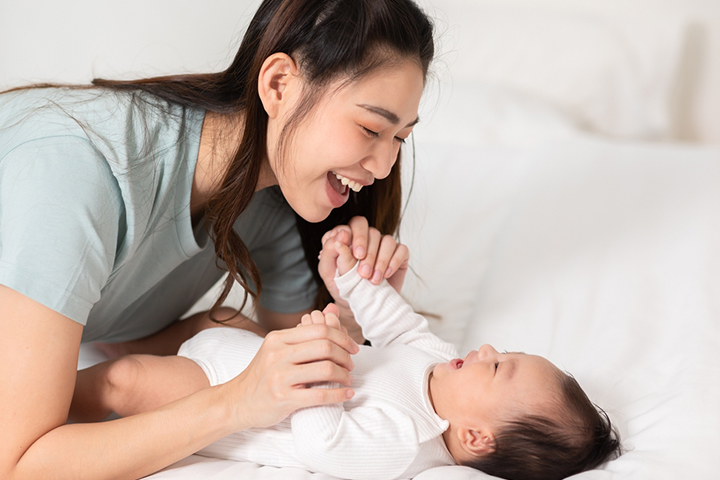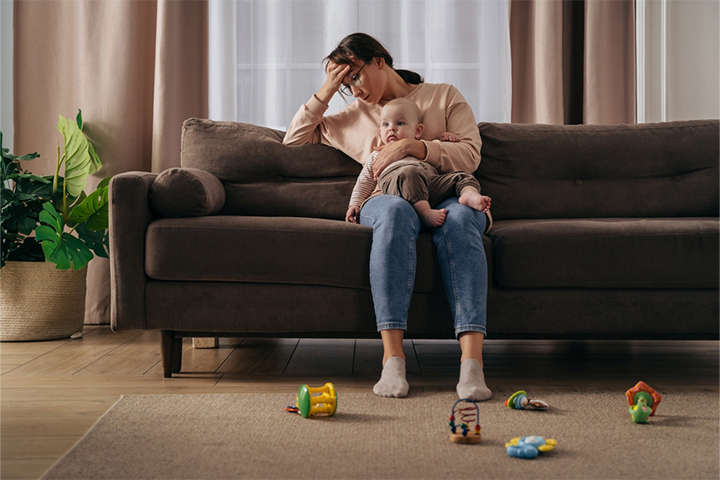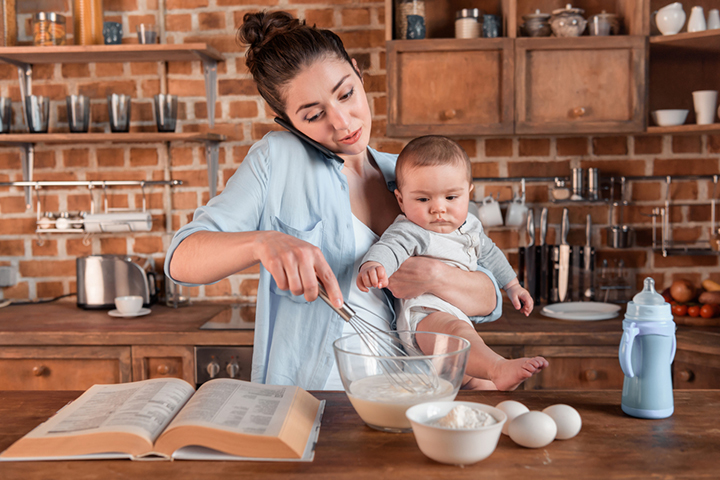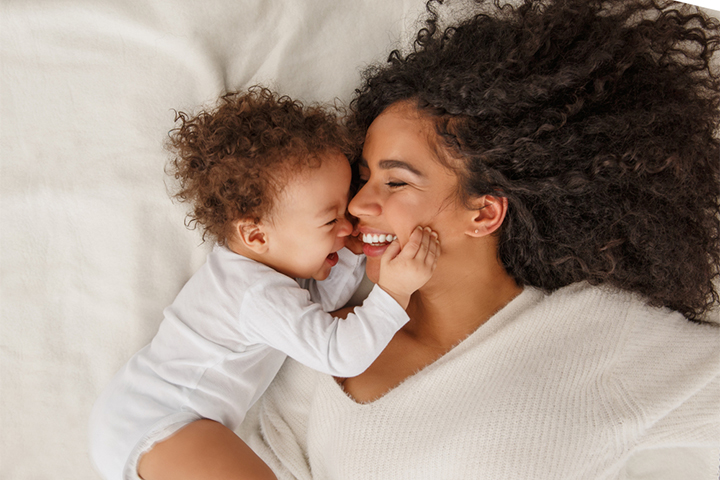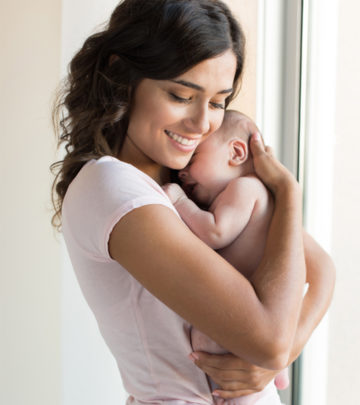
Image: Shutterstock
A pregnant woman’s body goes through many drastic changes as she takes on the responsibility of growing the baby in her womb. Her belly starts to expand, her hormone levels shift, and this can lead to swollen feet, varicose veins, diabetes, headaches and even hair loss. A woman’s body goes through a lot when she is pregnant, but this is just the beginning. She also experiences permanent changes in her body and brain chemistry after childbirth, as having a baby is such a life altering experience. So, if you’d like to know what your body has in store for, after your pregnancy, this is the article for you. Here are a few unexpected bodily changes that happen after pregnancy and what it means for you.
1. The Voice Changes
Image: Shutterstock
If you’re wondering how your voice got low all of a sudden, it’s not because you now spend countless hours yelling at your overactive 10 month old. Your voice probably changed well before then, when you were pregnant with your little one. Scientists from the University of Sussex found that women who had given birth experienced their voices becoming lower and monotone. However, around a year after childbirth their voices went back to their initial frequency and tone. Researchers think that this temporary change is due to the hormonal changes caused by pregnancy. The level of sex hormones a woman’s body produces reduces drastically upon giving birth and this can affect the vocal cords. The maximum voice height of a woman who gives birth falls to 44 Hz or 2.2 semitones according to scientists. And this is the equivalent of two piano notes.
2. They Experience More Anxiety
Image: Shutterstock
Young or first-time mothers frequently receive advice about the importance of staying composed, calm, and serene. However, maintaining such composure can prove challenging when caring for a newborn, particularly if you don’t feel entirely equipped to handle the responsibility on your own. Typically, new mothers experience mounting concerns and apprehension about making mistakes or inadvertently harming their infant. Consequently, they become hyper-focused on their baby’s every cry, facial expression, and movement. If you often find yourself pondering whether your baby is sleeping enough or eating too much, please understand that this reaction is entirely normal. It’s not the woman herself who is excessively anxious, but rather the hormone oxytocin, which elevates her levels of anxiety.
Oxytocin is a natural hormone that plays a vital role in the female reproductive system, particularly in labor and lactation. After childbirth, oxytocin is released significantly into a woman’s system. This hormone helps the uterus, which has stretched during pregnancy, contract back to its original size, and it also triggers the maternal instinct.
3. The Brain Works Better
Image: Shutterstock
Although the young mother is overwhelmed and anxious, they do become smarter after childbirth. Scientists have found that the brain of the mother does become bigger. And they suggest that this is in order to meet the unique needs of both the mother and the child. They learn to become efficient in terms of decision making skills, being emotionally resilient and becoming great at finding new strategies in order to solve problems. Neurobiologist Craig Kinsley notes that not only is giving birth to a child a big event in a woman’s life, it’s also a big stage in her mental development, which is as important as the teenage stage in life.
4. The Body Gets Refreshed
Image: Shutterstock
A remarkable regenerative process occurs following childbirth, driven by the presence of fetal blood. Shortly after giving birth, embryonic cells are generated to aid in the maternal healing process. This regenerative capacity also contributes to the prevention and treatment of serious diseases. A noteworthy example is the case of a pregnant woman with hepatitis C who displayed signs of recovery even after discontinuing treatment, and scientists traced the source of her liver cells back to the fetus’s cells.
Moreover, pregnancy is associated with an extended lifespan, particularly when it occurs later in a woman’s life. Scientific research has revealed that women who have children at a more advanced age tend to enjoy longer lives.
5. Reduces The Risk Of Cancer
It’s quite surprising to discover that the protective mechanisms against cancer become active after women have children. For instance, women who give birth at a younger age have a reduced risk of developing ovarian and endometrial cancer. Furthermore, the risk diminishes with each additional full-term pregnancy.
Having a baby brings about several bodily changes. Some of them are beneficial and others are not. But regardless of the changes you feel and notice, the most important thing to focus on after childbirth is to focus on your health and that of your little one. Rest well and take it easy so that you can adjust to these new life and body changes!
Sources
1. Anxiety During Pregnancy and Postpartum: Course, Predictors and Comorbidity with Postpartum Depression, NCBI
2. Pregnancy duration and breast cancer risk,NCBI
3. Role of Fetal Stem Cells in Maternal Tissue Regeneration, NCBI
4. ENT Changes of Pregnancy and Its Management, NCBI

